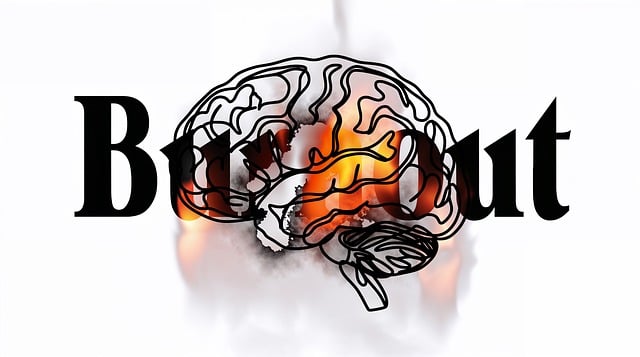Effective Highlands Ranch Relationship Issues Therapy (HRT) demands robust risk management due to ethical dilemmas, countertransference, and client vulnerability. Therapists must proactively identify risks, implement mitigation strategies, and prioritize cultural sensitivity. By integrating stress management tailored to individual needs, adhering to Mental Health Policy Analysis guidelines, and staying informed about best practices like Mental Wellness Coaching Programs and Depression Prevention strategies, HRT fosters trust and enhances positive outcomes in a secure environment. Regular reviews are essential to adapt to evolving standards and maintain compliance with legal requirements.
In the high-pressure environment of Highlands Ranch Relationship Issues Therapy, effective risk management planning is paramount. This article delves into the essential strategies for professionals navigating complex client scenarios. We explore understanding risk factors unique to this setting, developing robust plans, and implementing mitigation strategies. By following these guidelines, therapists can ensure safe, ethical practices while fostering healthy therapeutic relationships. Regular reviews are crucial to adapt to evolving challenges, ultimately enhancing patient outcomes.
- Understanding Risk in Highlands Ranch Relationship Issues Therapy
- Developing a Comprehensive Risk Management Plan
- Implementing and Reviewing Risk Mitigation Strategies
Understanding Risk in Highlands Ranch Relationship Issues Therapy

Understanding risk is a cornerstone of effective Highlands Ranch Relationship Issues Therapy (HRT). In this context, risk encompasses various aspects that can impact both clients’ well-being and therapists’ professional integrity. Therapists in HRT must be adept at identifying potential hazards, such as ethical dilemmas, countertransference, or the exacerbation of existing client vulnerabilities. By acknowledging these risks proactively, mental health professionals can implement mitigation strategies to ensure safe and culturally sensitive practices.
Cultural sensitivity in mental healthcare practice plays a pivotal role in risk management. Therapists navigating HRT must be attuned to the diverse cultural backgrounds and beliefs of their clients. Incorporating stress management techniques tailored to individual needs, along with adhering to relevant Mental Health Policy Analysis and Advocacy guidelines, is essential to foster trust and mitigate potential risks. This holistic approach ensures that HRT remains a safe haven for clients seeking support in addressing complex relationship issues.
Developing a Comprehensive Risk Management Plan

In the highland’s of mental health care, especially within Highlands Ranch Relationship Issues Therapy settings, a robust Risk Management Plan is not just beneficial—it’s imperative. This strategic document acts as a beacon guiding therapists through unpredictable situations, ensuring patient safety and well-being while fostering a secure therapeutic environment. A comprehensive plan involves meticulous risk assessment, tailored crisis intervention strategies, and proactive mood management techniques. By integrating these elements, professionals can anticipate potential hazards, from client agitation to emotional outbursts, and equip themselves with the tools for effective de-escalation.
Such planning should encompass various aspects, including developing clear protocols for handling high-risk cases, providing Crisis Intervention Guidance, and implementing strategies to boost client confidence. Regularly updating this plan is crucial, reflecting evolving best practices in mental health care. Through diligent preparation, therapists can navigate complex situations with confidence, ultimately enhancing the therapeutic experience and achieving positive outcomes for clients facing diverse challenges.
Implementing and Reviewing Risk Mitigation Strategies

Implementing risk mitigation strategies is a proactive step for mental health professionals to ensure their practices are safe, effective, and compliant with relevant policies and guidelines, especially in addressing Highlands Ranch Relationship Issues Therapy. These strategies may include establishing clear boundaries between therapist and client, implementing robust data protection measures, and regularly updating knowledge on evidence-based therapeutic approaches. Regularly scheduled reviews of these strategies are crucial to keep up with evolving best practices and legal requirements, as well as adapt to the changing landscape of mental health care.
For instance, integrating Mental Wellness Coaching Programs Development can enhance risk management by equipping clients with tools for self-care and early intervention, thereby reducing the severity of issues that require professional therapy. Similarly, staying informed about Depression Prevention strategies not only helps in managing client risks but also underscores a commitment to holistic mental health care. Additionally, Mental Health Policy Analysis and Advocacy ensures that practices align with broader public health initiatives, fostering an environment where professionals can focus on patient outcomes rather than navigating complex regulatory hurdles.
Mental health professionals in Highlands Ranch Relationship Issues Therapy must proactively manage risks to ensure safe and effective care. By understanding unique client needs and potential hazards, therapists can develop comprehensive risk management plans tailored to their practice. Implementing robust strategies and regularly reviewing them fosters a dynamic environment that mitigates risks while enhancing patient outcomes. Through diligent planning and continuous improvement, professionals in Highlands Ranch Relationship Issues Therapy can provide high-quality services with confidence.













